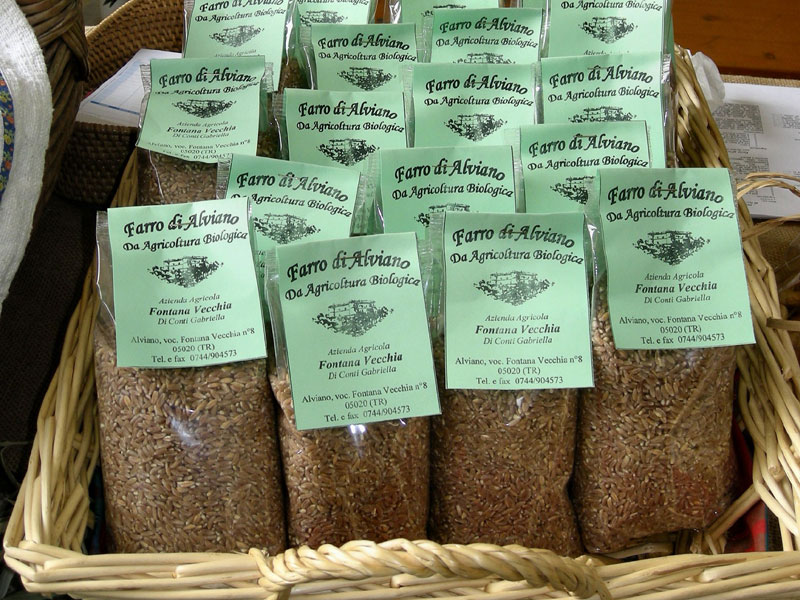Spelt
Spelt is a herbaceous plant of the family of Gramineae and a very ancient cereal. It probably comes from Palestine, from where it widespread in Egypt (it has also been found in Egyptian tombs) and Syria (it is already mentioned by Homer).
For centuries spelt has been essential in the diet of the Romans: it was very precious for them, they used it as an exchange good and during the wedding ceremony: the bride used to offer the bridegroom a dessert or bread made with spelt flour and they ate it together. Spelt was also used during some religious ceremonies, as a propitiatory gift to the gods.
Spelt has had a considerable success, since it grows well in poor soils and resists very well to the cold.
With the introduction of other cereals in the Middle Ages it was gradually abandoned: its yield per hectare is not so high and harversting is difficult, since the grains usually fall to the soil as they ripen.
Spelt is without a doubt the best cereal in grains for its versatility, cooking ease, taste, and nutritional features.
It is advisable to choose hulled spelt, and not pearl spelt, since the process to make pearl spelt eliminates most of the fibers but does not give advantages in terms of taste, it only shortens cooking time.
Hulled spelt has the following features:
- it cooks in a fairly short time (about 45 minutes), faster than barley and rye;
- it does not need soaking (even if it is recommended);
- it does not have the unpleasant taste of bran of whole-meal cereals although it contains many fibers (about the 7%), and has therefore a neutral taste matching with any hot or cold dish;
- it absorbs a great quantity of water during the cooking, almost 2.5 times its weight, indicating a considerable satiety index;
- it is the least caloric cereal (335 calories for 100 g);
- it contains 15% of proteins, and is therefore ideal to be combined with legumes to obtain not too caloric dishes.
Therapeutic properties of spelt
With spelt it is possible to make pillows that let breathe very well and let us enjoy a peaceful sleep. The high quality of the silicic acid contained in the husk of the spelt has beneficial effects for: muscle hardening - headache and migraine - backache - circulation disorders - insomnia - rheumatic pains - toothache - colds and menstural pains - inflammations.
It is enough to place the pillow directly on the interested area, at direct contact with the body. With warmth, the substances activate, heal the inflammation, decongest, and naturally favor well-being and pleasure.






